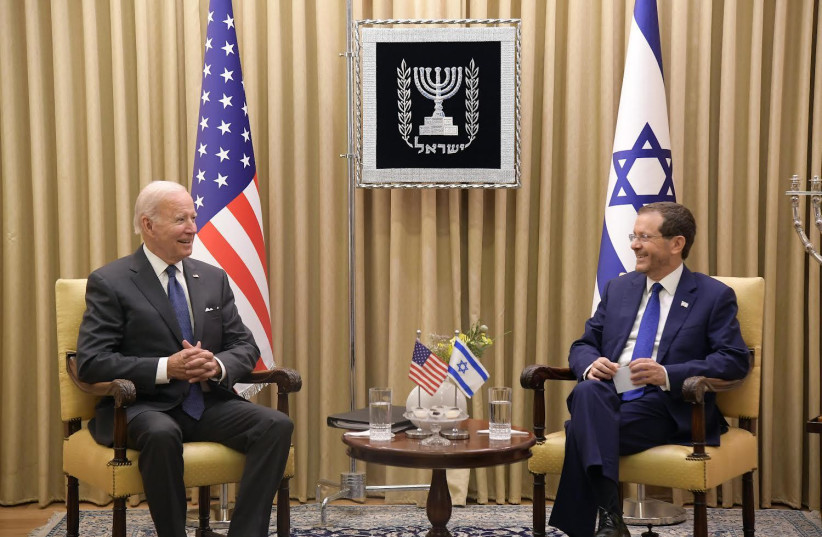Israel will oppose a return to the Iran nuclear deal, Prime Minister Benjamin Netanyahu told President Isaac Herzog on Thursday in their meeting ahead of the latter’s trip to Washington next week.
They discussed the Iranian nuclear threat and Tehran’s destabilizing actions in the region, their offices said.
Netanyahu “emphasized two redlines,” a source close to the prime minister said Thursday.
“Israel will not agree to an American return to the dangerous nuclear deal with Iran and will act with every means it has to stop Iran from attaining a nuclear weapon,” the source said, adding that “Israel will not agree to a ‘no surprises’ policy when it comes to Iran.”
Netanyahu has repeatedly emphasized that he will not share all of Israel’s plans to counter the Iranian threat with the US.

Herzog plans to arrive in Washington on Tuesday for a meeting with US President Joe Biden and an address to both houses of Congress.
Biden “looks forward to welcoming” Herzog to the White House on July 18, a statement said Thursday.
What does Biden plan for the meeting?
“President Biden will reaffirm the ironclad commitment of the United States to Israel’s security,” White House press secretary Karine Jean-Pierre said. “The two leaders will discuss opportunities to deepen Israel’s regional integration and to create a more peaceful and prosperous Middle East.”
Biden will also “stress the importance of our shared democratic values” – a likely reference to judicial reform – “and discuss ways to advance equal measures of freedom, prosperity, and security for Palestinians and Israelis,” she said.
In addition, the leaders plan to discuss the Iranian threat and Russia’s military relationship with the Islamic Republic.
Earlier this week, Biden said the current Israeli cabinet was the “most extreme” he has ever seen, citing its ministers’ support for settlement expansion. He has declined to invite Netanyahu to Washington over the government’s policies.
While the Biden administration is not happy about the coalition’s judicial reform and is even less happy about plans to build thousands of new homes in Israeli towns in the West Bank, their main gripe is about Iran and Netanyahu’s refusal to adopt a “no surprises” policy relating to actions against Tehran, another source close to Netanyahu said earlier this week.
Iran is an “existential issue,” the source said. “The Biden administration is repeating the texts of the Obama era: that we have to be quiet and accept [US policy] in the name of the special relationship. We can’t accept that.”
